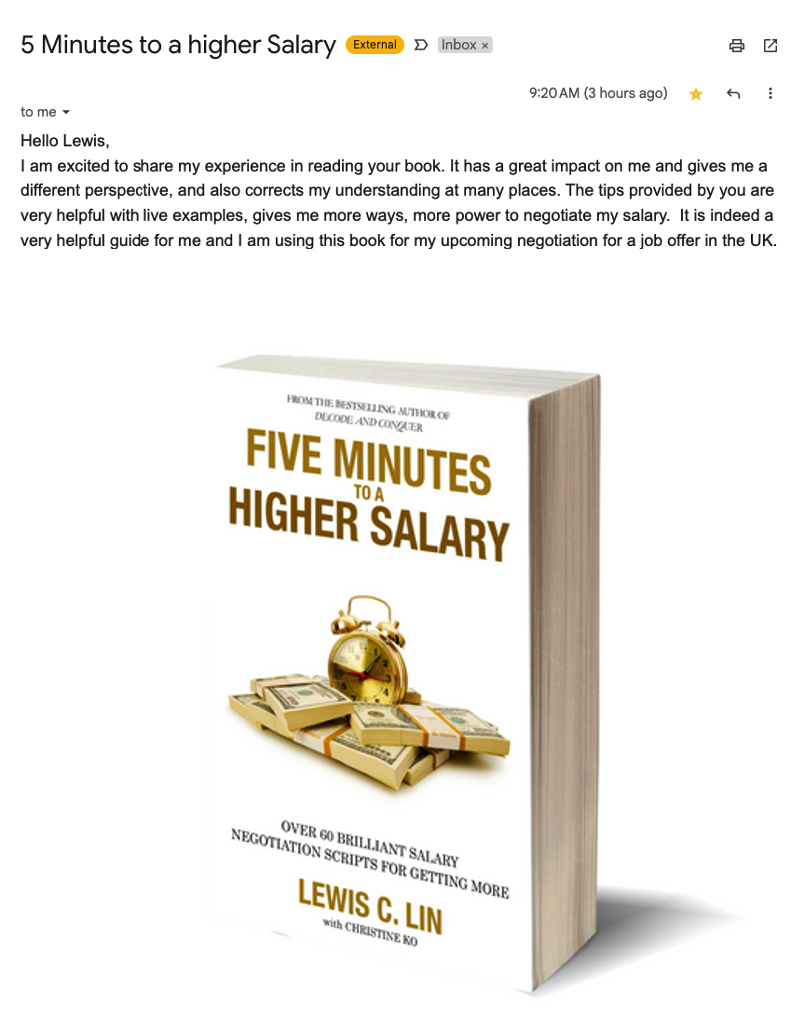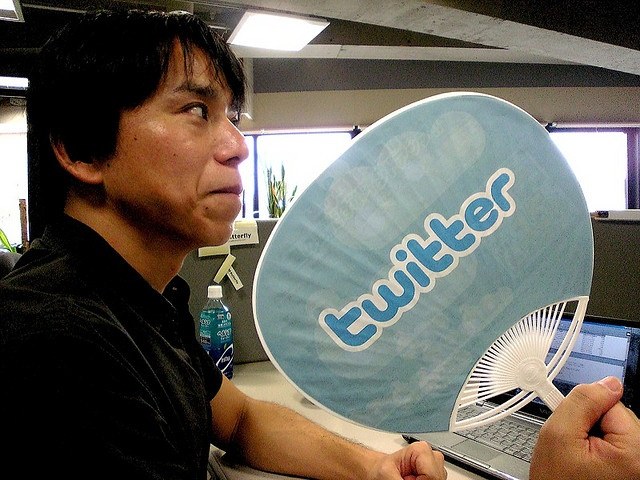There's nothing quite like receiving a glowing testimonial from a satisfied reader. And that's exactly what happened to me recently with my book, 5 Minutes to a Higher Salary.*
The reader who provided the testimonial was particularly impressed with the live examples included in the book. These examples really helped to bring the concepts to life and make them more understandable and applicable to real-world situations.
But what really stood out to this reader was how the book gave him more ways and power to negotiate his salary. Negotiating salary can be a daunting prospect for many people, but my book breaks it down into easy-to-understand steps that anyone can follow. And by doing so, it gives readers the tools and confidence they need to negotiate the salary they deserve.
Finally, the reader mentioned how my book corrected his understanding of negotiation in many places. This is something that I hear a lot from readers – they think they know how to negotiate, but once they read the book they realize they've been doing it wrong all along. By correcting these misconceptions, my book empowers readers to negotiate with confidence and achieve the best possible outcome.
I'm thrilled to have received such positive feedback on my book, and it's a testament to the hard work and dedication that went into creating it.
*In the latest 2nd edition, I renamed the book to 71 Brilliant Salary Negotiation Email Samples.

